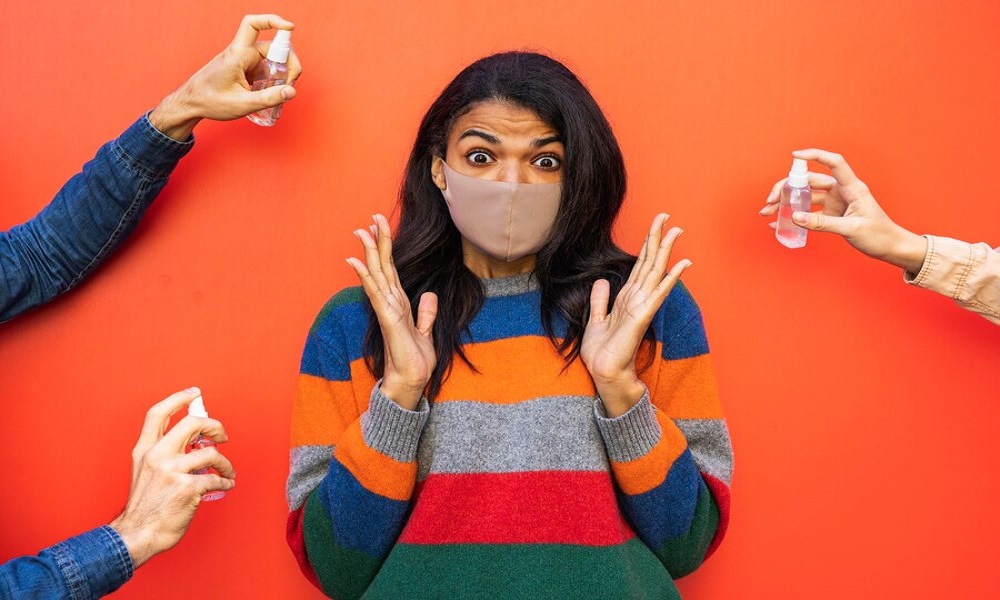Introduction
Coronavirus is the most talked about and concerning topic in media and news these days. It is one of the common viruses that can cause infection in your sinuses, nose or upper throat. Most of them are not dangerous as they present with mild symptoms and can be treated symptomatically, but it killed around 858* people from Middle East respiratory syndrome (MERS) in 2015.
Undiscovered coronaviruses like the Wuhan Coronavirus are very dangerous because specific treatment for such viruses is not yet available and it rapidly progresses to cause multi-organ failure. This category of the virus causes harmful diseases in mammals as well as in birds. In humans, the virus causes mild respiratory infections, which in rare cases may even cause death. In animals, like cows and pigs, it causes diarrhea, while in chickens it causes severe respiratory infections.
When it comes to the basic description of the virus, Coronavirus comes under the sub-family Orthocoronavirinae. It has been surrounded by an envelope like a frame, which gives a definite sense of the single-stranded RNA genome. In most cases, it is difficult to detect if coronavirus or a different cold-causing virus is causing you fever. Known as “2019-nCoV”, the newly identified coronavirus can cause pneumonia, and like other respiratory infections, it has an incubation of between 1 and 14 days.
What exactly is a coronavirus?
Early discovered in the 1960s, the name of this virus comes from the crown-like spikes that it has its surface. The word corona came from the Latin word “Crown.” Coronaviruses are a large group of viruses that infect animals and mammals like bats, pigs. Scientists call them zoonotic because they get a transfer from animals to humans.
Causes for infection from coronavirus
Scientists have experimentally identified that there are two possible reasons for the disease from coronavirus:
– Consumption of wildlife foods such as bats:
The most common cause of the infection of the coronavirus is eating wild animals. Most of the cases have come across for eating bats and snakes.
– Animal pathogens:
The body physiology of every animal is different; thus, every animal have some specific micro-organism residing in its body — Eating them affects the incompatibility in the creature and the chance of traditional suffering increases.
– Transmission:
Transmission of coronavirus takes place while making contact with a surface or object that has the virus and then touching your nose, eyes, or mouth.
How it spreads?


Prevention?


Signs and Symptoms of the Infection:
Symptoms are typically mild to moderate. In some cases, the viruses can cause lower-respiratory tract illnesses such as pneumonia and bronchitis.
Coronavirus usually affects the respiratory system in human, so the various symptoms traditionally observed in human beings are:-
A general feeling of being unwell
– Respiratory illness
– Runny Nose
– Coughing
– Sore throat
– Fever
– Chills
– Pneumonia
– Difficulty in breathing


As the outbreak continues to create panic within society, a lot of misinformation is also being circulated on social media platforms. Let’s check out some of these myths floating around.
Myth #1: Coronavirus will go away in the summer
Fact: According to the World Health Organization, this strain of coronavirus can be transmitted regardless of the region’s climate. A change in temperature isn’t expected to curtail the outbreak.
Myth #2: In summer, the virus will spread more due to mosquito bites
Fact: According to research, this infection only spreads via respiratory droplets, not blood. Mosquitos cannot spread the disease.
Myth #3: Drinking water every 15 minutes will prevent you from contracting the virus
Fact: Washing away a respiratory virus is impossible.
Myth #4: A vaccine to cure COVID-19 is available
Fact: There is no vaccine for the new coronavirus right now. Scientists have already begun working on one, but developing a vaccine that is safe and one that has undergone clinical trials in human beings will take many months.
Myth #5: You can protect yourself from COVID-19 by swallowing or gargling with bleach, taking acetic acid or steroids, or using essential oils, saltwater, ethanol, or other substances.
Fact: None of these recommendations will protect you from getting COVID-19, and some of these practices may be dangerous. The best ways to protect yourself from this coronavirus (and other viruses) include washing your hands frequently and thoroughly, using soap and hot water. Avoiding close contact with people who are sick, sneezing, or coughing. Also, you can avoid spreading your germs by coughing into the crook of your elbow and staying home when you are sick.
Myth #6: You can get the virus from products made in China
Fact: Scientists currently believe that the virus doesn’t survive for extended periods on hard surfaces, although its lifespan still is being studied. A package from China will be in transit for several days or weeks before being delivered so it’s unlikely that it harbor’s the virus.
Myth #7: Spraying alcohol or chlorine all over the body or bathing in hot water can protect people from the new coronavirus
Fact: As a pathogen that attacks the respiratory system, the COVID-19 virus cannot be “cleaned out” once it enters the body, according to the WHO. The only way to protect yourself is to prevent droplets containing the virus released by an infected person, from coming in contact with your body’s most exposed entry points—the nose and mouth, and to some extent, the eyes.
Both alcohol and chlorine are good disinfectants but these are meant only for hard surfaces and should be used as recommended on the product containing them. Neither of these chemicals are safe to use on your body. At best, they can cause irritation, dryness and peeling. More seriously, they can lead to rashes and burns or worse. Inhaling the fumes from these liquids could damage the sensitive respiratory tract as well.
Hand sanitizers, that contain alcohol, are specially prepared to be safe for use on the body, but only externally. Make sure you use them very carefully as they are highly inflammable. If overused, they could also lead to excessive dryness and irritation, and should never be consumed.
Myth #8: Hand sanitizers are better than soap and water
Fact: Soap and water actually kills and washes away the virus from the skin (it cannot penetrate our skin cells), besides cleaning the visible soiling of hands.
Myth #9: Chinese food is unsafe to eat right now
Fact: According to the Centers for Disease Control and Prevention (CDC), the spread of the virus has created a stigma toward Asian-Americans, the East Asian community, and other groups who were placed in quarantine. In reality, the virus spreads through respiratory droplets and there’s little risk of contracting the virus from food. The best way to protect yourself is frequent hand washing.
Myth #10: A face mask will protect you from COVID-19
Fact: Masks are effective at capturing droplets, which is the main transmission route of the coronavirus. According to the CDC, masks should only be worn by healthcare professionals. If someone is in close contact with an infected person, a mask cuts the chance of the disease being passed on. Also, it is advisable to people who show symptoms of COVID-19, or who have been diagnosed, to wear a mask as that can prevent the virus from passing on. Ideally, both the patient and the caretaker should wear a mask. It will, however, make little difference if you’re just walking around town or taking a bus while wearing a face mask.
Myth #11: The virus was manufactured in a lab and was deliberately released.
Fact: Viral outbreaks are common when an animal undergoes changes and passes the virus to humans, which is the likely origin of the coronavirus. Since early January, conspiracy theorists have been spreading the word that the novel coronavirus outbreak is a bioweapon, engineered by humans and released, either deliberately or accidentally to the public to wreak havoc on global economies and politics. This claim was supported by the fact that Wuhan, China, the first known location from which the virus was transmitted from an animal to humans, is close to the Wuhan Institute of Virology, whose labs study the world’s deadliest viruses. The belief became widespread enough to cause many, including some world leaders, to dub the pathogen as a “Chinese virus” or the “Wuhan virus”
However, a new study titled “The proximal origin of SARS-CoV-2” has debunked this claim and states that the virus is natural and not man-made. “Evidence shows that SARS-CoV-2 is not a purposefully manipulated virus and does not believe that any type of laboratory-based scenario is plausible,” the study says. Human-made viruses would require scientists to manipulate existing viruses and introduce new components and properties, but the novel coronavirus virus has characteristics different from previously known viruses, so they must be from a completely new, so far undiscovered one.
Myth #12: The virus only affects the elderly
Fact: People who are elderly or have compromised immune systems are at a greater risk for severe illness if they contract the virus, according to WHO. But anyone of any age can contract and spread the virus to others, which is why it’s important for everyone to take precautions and frequently wash their hands.
Myth #13: The pets at home can spread the new virus
Fact: There is no such evidence at present that companion animals/pets such as dogs or cats can be infected with the new coronavirus. However, it is a good practise to wash your hands with soap and water after contact with pets.
To conclude, the reports are that the coronavirus is very virulent, and hence is leading to multiple deaths worldwide. Thus, everyone needs to be aware of coronavirus and we need to educate each other on how to prevent it from spreading.
#STAY HOME #STAY SAFE
Cited Articles:
https://economictimes.indiatimes.com/news/et-explains/all-you-need-to-know-about-the-deadly-novel-coronavirus/articleshow/73542980.cms?from=mdr
https://www.who.int/emergencies/diseases/novel-coronavirus-2019/advice-for-public/myth-busters
https://www.readersdigest.co.in/health-wellness/story-five-more-myths-about-covid-19debunked-125374
https://www.seattletimes.com/seattle-news/health/fact-check-debunking-10-myths-about-the-new-coronavirus-that-causes-covid-19/
https://carpha.org/Portals/0/Documents/myths.pdf
Author:
Dr. Gaurav Girdhar, Senior Lecturer, Dept. of Periodontics and Oral Implantology






